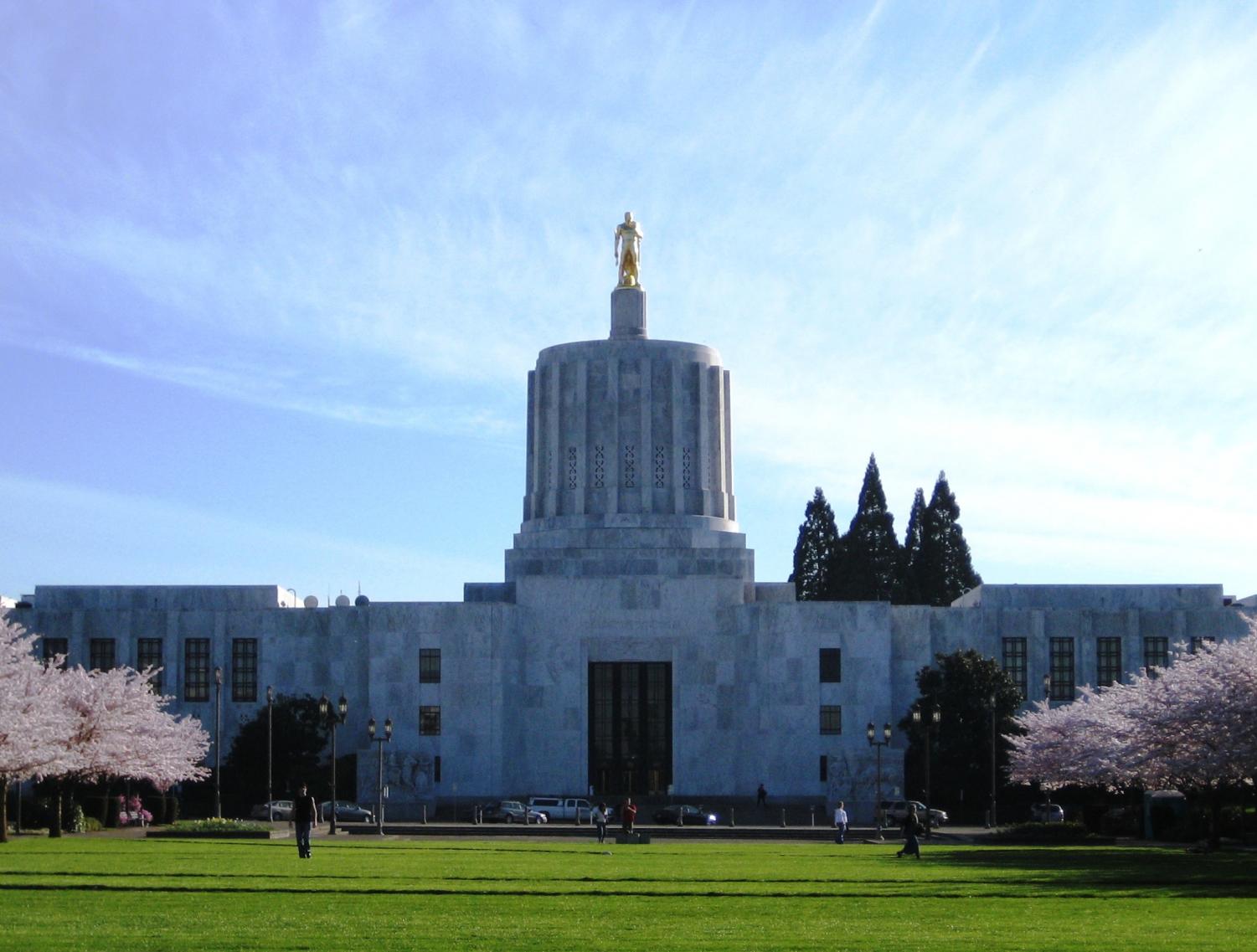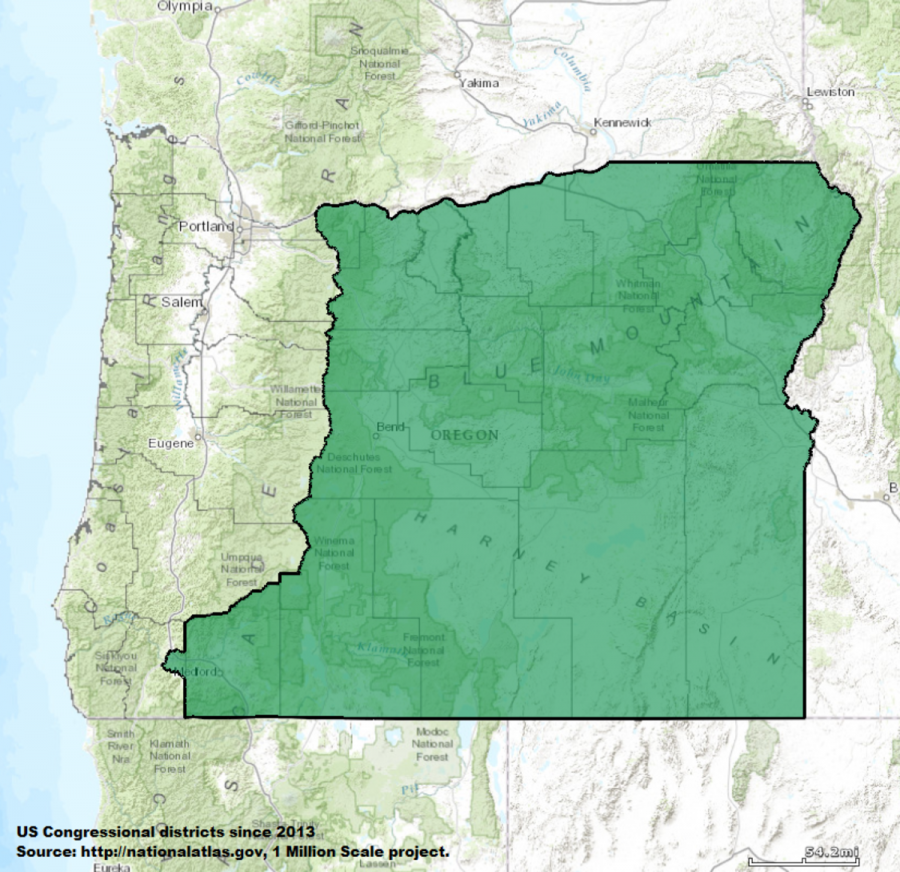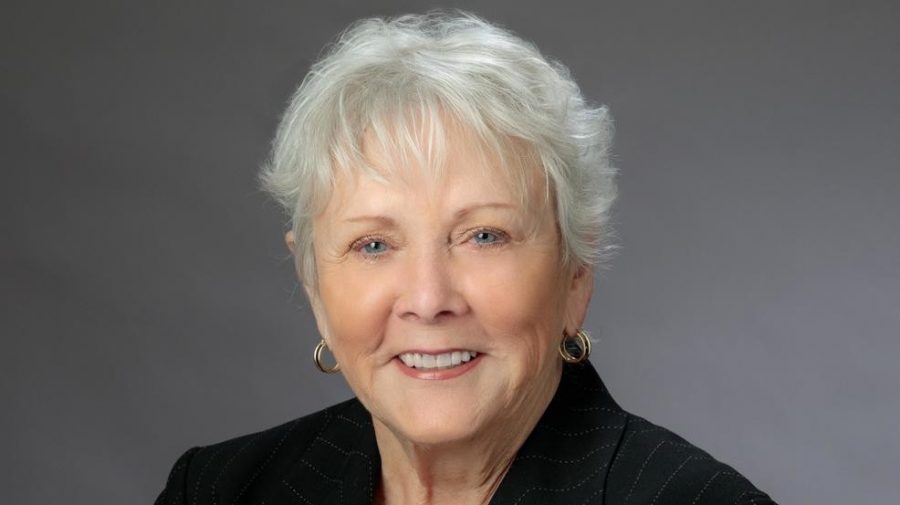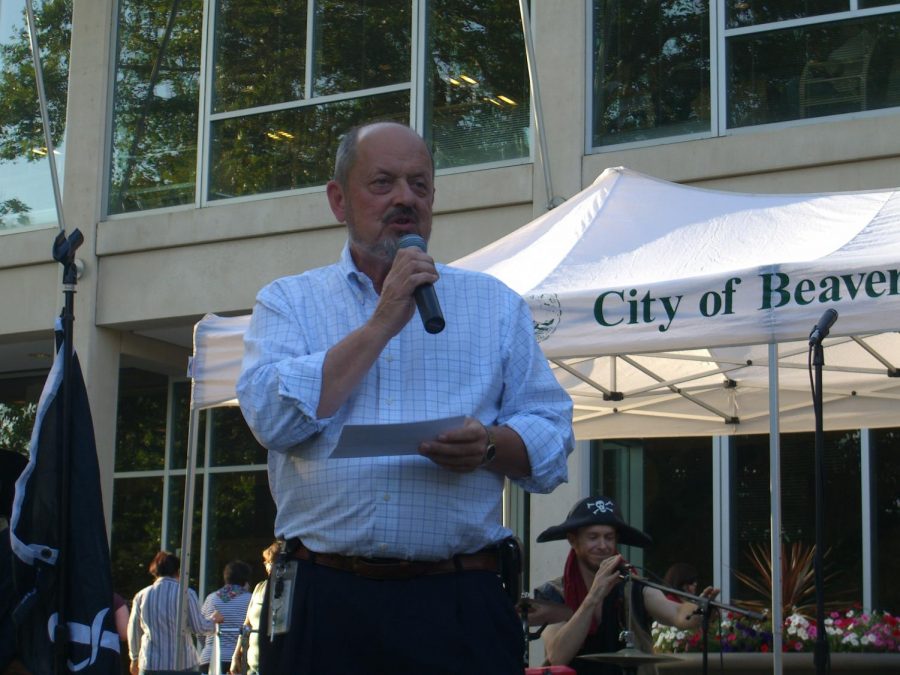Must-watch state and local races for Oregon’s primary day
March 13, 2020
While national election coverage has blanketed TV airwaves and social media for the last few months, Oregon’s late-stage primary date, May 19, all but ensures that by the time it votes in the Democratic and Republican presidential primaries, both parties will have already solidified their eventual nominee. Despite the fact that Oregon lacks coveted status as a must-win presidential primary state, however, voters will also vote in key local primary races on May 19 that will determine the makeup of 2021’s county commissions, mayoral offices, and city councils.
Here are some of the must-watch state and local races in the upcoming May 19 primary:
Oregon Congressional District 2
Oregon’s Congressional District 2 covers a broad swath of rural portions of the state, including all of central and Eastern Oregon.
The only Republican-held congressional district in the state, Congressional District 2, is being vacated by longtime incumbent Greg Walden, who has held the seat since 1999. While District 2, which encompasses much of Eastern Oregon, has traditionally been solid red, a slate of Democratic candidates hopes to capitalize on the tightening gap witnessed between Walden and his Democratic challenger in 2018.
In the Republican primary, there are currently 10 Republican candidates running to replace Greg Walden. Some of the more well-known challengers include Knute Buehler, who ran for governor in 2018, as well as state Sen. Cliff Bentz, a Republican from Ontario who represents parts of central and eastern Oregon. While Buehler has the most centrist, moderate reputation of the Republican primary candidates, he has adapted his messaging to hue more closely to Trump and traditional conservative values in an effort to win the heavily conservative primary.
In the Democratic primary, there are four Democrats vying for the Democratic nomination in C.D. 2, including Medford caregiver John Holm and Klamath Falls community activist Alex Spenser. The lack of established Democrats running for the seat is perhaps indicative of the presumably long-shot chances any Democratic nominee will face in the general election, as Cook Political Report continues to rate the district solidly Republican.
Oregon Secretary of State
Oregon’s current Secretary of State, Bev Clarno, assumed office in 2018 after the death of her predecessor, Dennis Richardson. She will not seek election.
Oregon’s Secretary of State is currently the only state executive office held by a Republican. Since Dennis Richardson’s death in 2018, the seat has been held by his interim replacement, Bev Clarvo, who has announced she will not seek election in 2020. As the last stronghold in Oregon’s state government for Republicans, there is a fierce primary battle underway for Democrats.
In the Democratic primary, three candidates are competing for the nomination. Jamie McLeod-Skinner, a Terrebonne Democrat who gained political limelight for her challenge against Greg Walden in 2018, announced her candidacy late last year. She has distinguished herself as a centrist, rural candidate who made some inroads in Walden’s ruby-red district last year, though she still lost by 17 points. Rep. Jennifer Williamson, a Democrat from Portland and the former state House majority leader, and Sen. Mark Hass, a former television broadcaster and a state senator representing Beaverton, are also vying for the nomination.
For Republicans, Sen. Kim Thatcher and Dave Stauffer will face off for the Republican nomination in May. Thatcher is from Keizer and has served in the state legislature since 2005. She has positioned herself as a pro-business, pro-transparency and accountability Republican, which echoes Richardson’s reputation as Secretary of State. Stauffer, meanwhile, is a former Democrat who ran for governor in 2016 and proposed alleviating traffic on the I-5 bridge by building water slides.
Portland mayor

Current Portland Mayor Ted Wheeler (pictured above) assumed office in 2017 and is competing for a second term.
Portland will hold a nonpartisan mayoral primary on May 19, with the top two contenders facing off in November. Incumbent Mayor Ted Wheeler has attracted four Democratic challengers due to widespread controversy over his handling of public protests, particularly in regards to white nationalist groups such as the Proud Boys, as well as perceived mismanagement over his handling of Portland’s homelessness crisis and the proposed expansion of the I-5 corridor in the Rose Quarter.
His most significant challenge comes from Sarah Iannarone, an educator who has framed herself as an outsider and a progressive alternative to Wheeler. Other challengers include Theresa Raiford, an anti-gun violence activist, and Ozzie González, a TriMet board member.
Beaverton mayor
Beaverton Mayor Dennis Doyle has served since 2009. He is currently running for his fourth term in office.
For Jesuit students who live in Beaverton, Beaverton’s mayoral race may have significant consequences. Unlike every other city in the Portland metro area, Beaverton’s mayor functions as the chief executive of city government. Other cities, including Portland, appoint a city manager that collaborates with city council to institute policies. As a result, Beaverton’s mayor often exercises more authority compared to other mayors. Current Beaverton Mayor Denny Doyle has two challengers, Beaverton City Councilors Lacey Beaty and Cate Arnold, who serve Position 3 and Position 4, respectively.
Doyle is 70 and has served three terms, while Beaty is 35 and was Beaverton’s youngest city councilor when elected in 2014. Beaty has made the race about age and generational differences, arguing that Beaverton’s next mayor should be thinking about the next twenty years, not just the next four, which she suggests Doyle’s age prevents him from doing. Beaty generally embraces similar goals as Doyle, such as affordable housing and business development.
Meanwhile, though the race has long centered around Doyle and Beaty as the lone two candidates, a last-minute entry by Councilor Arnold has shaken up the race. Arnold stresses that she is only running for office to promote the adoption of Beaverton’s revised city charter, which voters will also decide on May 19. The charter will limit the powers of Beaverton’s mayor and create an appointed city manager-style government, a change that mirrors the organizational structure of most city governments, while also giving the mayor a seat on the Beaverton City Council.
Washington County Commission Districts 1 and 3

Washington County, Oregon website
With Commissioner Schouten’s retirement in District 1, Commissioner Rogers is the only incumbent running for re-election.
In 2018, the Washington County Commission, a 5-member board considered the chief executive body for Washington County, had significant turnover, with three new members replacing longtime incumbents. Though the board is technically nonpartisan, members often have an implicit party association based on which county political party and interest groups endorse them. The party composition of the board in 2018 shifted from a 3-person Republican majority to a 4-person Democratic majority.
In 2020, two commission seats are up for grabs: District 1, which includes Jesuit and other parts of Beaverton, and District 3, which includes Tigard, Tualatin, and Sherwood. Commissioner Dick Schouten, first elected in 2000, is retiring from District 1, setting off a three-person race for his seat. Meanwhile, Commissioner Roy Rogers, the Commission’s longest serving member and the last remaining Republican-endorsed commissioner, is running for re-election against Ben Marcotte, a software engineer from Garden Home.
Whether the Commission will retain its last remaining experienced member–and whether yet another fresh face on the Commission will change how Washington County approaches policymaking–makes the Commission race a must-watch for residents of Washington County.




